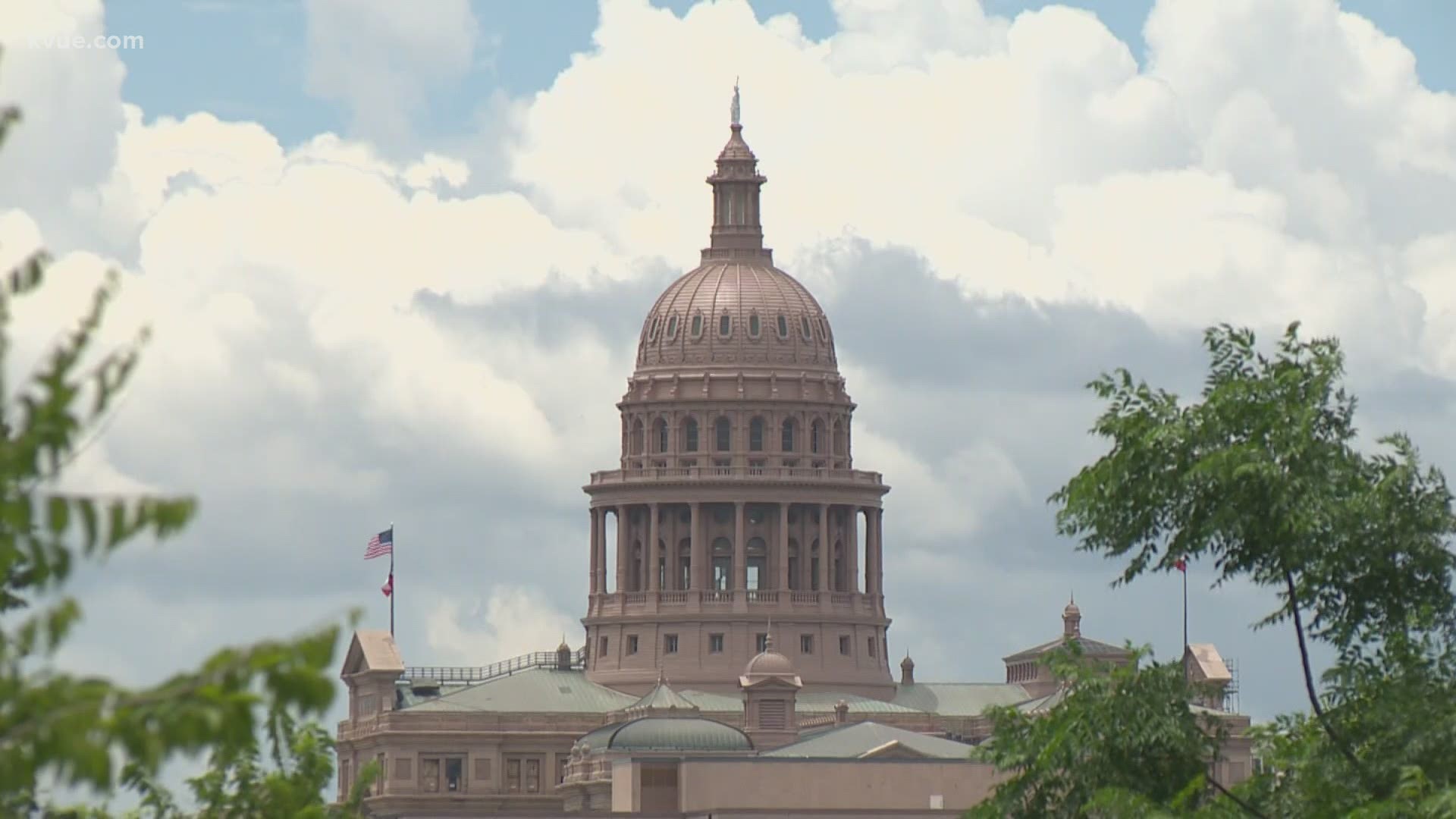AUSTIN, Texas — Texas is joining 18 other states in opting out of additional federal unemployment benefits that had been offered during the pandemic. Some Austin business owners said this could help them hire more staff around the city because some places have been struggling to find workers.
"I'm lucky, but I do know a lot of people are having a tough time," said Michael Girard, owner of Speakeasy. "Most people that I've talked to have said, you know, it's been really tough trying to, trying to get up to full staff. In a nutshell, they're competing with the government."
Starting June 26, unemployed Texans won't have the option to get federal pandemic-related unemployment benefits. That includes the weekly $300 unemployment supplement.
Gov. Greg Abbott said there are nearly 60% more listed jobs open in Texas compared to February 2020. And the head of the Texas Association of Business, Glenn Hammer, said he thinks this a good move.
"This is going to turn out to be a really great thing for employees as well who are in high demand and are seeing higher wages today than a year ago by a considerable amount," Hammer said. "The problem is that, right now, you have a federal unemployment supplement that made a lot of sense before the vaccines, but right now, doesn't make a lot of sense because the economy is energizing so quickly."
According to the Texas Workforce Commission (TWC), the number of job openings in Texas is almost identical to the number of Texans who are receiving unemployment benefits. Abbott said that assessment does not include the voluminous jobs that typically are not listed, like construction and restaurant jobs.
The TWC sent KVUE the following statement after Abbott announced Texas will be opting out of the federal benefits:
“The governor has announced that on June 26, 2021, Texas will stop participating in ARPA programs, including Federal Pandemic Unemployment Compensation (FPUC), Pandemic Emergency Unemployment Compensation (PEUC), Pandemic Unemployment Assistance (PUA) and the Mixed Earners Unemployment Compensation Program (MEUC). TWC and our workforce Solutions partners continue to offer services to assist individuals in finding employment and their training needs. We will be providing additional information to claimants as we transition away from these programs.”
This means people who wouldn't normally qualify for unemployment, such as self-employed people or part-time workers, may lose all benefits. The programs mentioned in the statement above – FPUC, PEUC, PUA and MEUC – are programs tied to the pandemic and it’s not regular unemployment insurance (UI). If people are on Extended Benefits (EB), they should be OK, but EB is only good for as long as Texas qualifies for it.
According to the Department of Labor, for the week ending on April 24 in Texas, PUA gave 344,440 benefits and 441,882 filed claims with PEUC.
Current job openings are for good-paying jobs, a press release from Abbott's office said. According to the TWC, nearly 45% of posted jobs offer wages at more than $15.50 per hour. Approximately 76% pay more than $11.50 per hour. Only 2% of posted jobs pay around the minimum wage.
But not everyone agrees with the governor's decision.
Texas AFL-CIO President Rick Levy sent KVUE this statement:
"Gov. Greg Abbott’s decision to cut off federal Unemployment Insurance benefits before they are scheduled to expire harms workers and businesses in service to partisan ideology, Texas AFL-CIO President Rick Levy said today.
'We can’t even imagine the thinking behind Gov. Abbott’s callous decision to strip the remaining federal Unemployment Insurance benefits out of the pockets of Texas working families,” Levy said. “If he took the time or had any interest in understanding the challenges working people face, Gov. Abbott would see clearly that folks across Texas desperately need these funds as they try to navigate their way through the economic carnage of the pandemic.'
'Ending these benefits is the wrong decision made at the wrong time for all the wrong reasons. Texans deserve better.'"
For job seekers having trouble finding work and for employers looking for great candidates, the TWC recommends utilizing Workforce Solution Centers and WorkInTexas.com, along with MyTXCareer.com. Below is a list of additional resources:
- Workforce Solutions Centers: TWC’s Workforce Solutions partners have over 180 offices around the state and help Texans find work. They offer free services such as access to thousands of job postings, job search resources, training programs and help with exploring career options, resumé and application preparation, career development and more. Find your local office here.
- MyTXCareer.com and WorkinTexas.com: MyTXCareer.com provides new users an easy streamlined way to register for WorkinTexas.com. WorkinTexas.com is a comprehensive online job search resource and matching system developed and maintained by the TWC. WorkInTexas.com provides recruiting assistance to Texas employers of all types and sizes and job search assistance to anyone seeking work in Texas.
- Skills Enhancement Initiative: The TWC has partnered with Metrix Learning to help Texans residents brush up on skills to prepare for better employment opportunities. The Metrix online learning platform provides Texans free online job readiness courses. Completion and passage of Metrix learning courses count as work search activities for the TWC.
- Virtual and in-person job fairs: Workforce development boards across Texas are sponsoring job fairs virtually and in-person to help connect job seekers with employment opportunities. Find a list of upcoming hiring events here.
- Child care: TWC’s child care services program subsidizes child care for low-income families, promoting long-term self-sufficiency by enabling parents to work or attend workforce training or education activities. The child care program also educates parents about the availability of quality child care, which enhances children’s early learning.
PEOPLE ARE ALSO READING:

